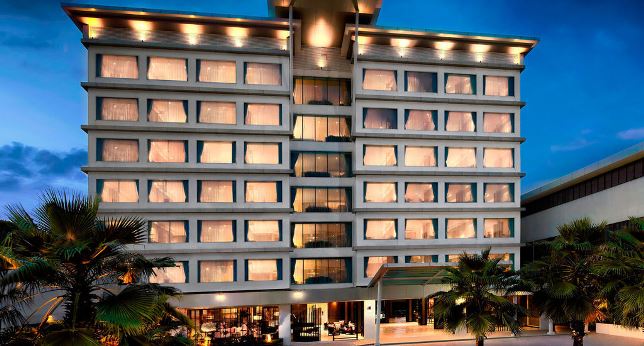The Ministry of Culture and Tourism of the Russian Federation has tabled a bill on an introduction of a procedure of necessary classification of the hotels of Russia. According to the Minister of Culture of the Russian Federation, Vladimir Medinskiy, “the hotels of Russia should be necessarily grouped according to the number of stars and they should broadly compete with each other. Yet being assigned by the hotels independently, the number of stars should be brought into compliance with the service level that the hotels provide”.
Today the Krasnodar Territory stays a region where most hotels have passed the certification procedure. It was connected with the fact that the hotels were entitled to take in guests in only case, if they had passed the necessary classification and had received a number of stars under the preparations for the Olympic games. According the experts’ estimates, the number of certified hotels totals about 70% in Sochi these days and the number of such hotels amounts to 15%-20% across the country. Numerous certification authorities exist in Russia now, and the procedure is paid: it totals about 30’000-50’000 RUR in Sochi.
Travel companies opinion
The marketing and advertising services director of “Travel Business Service” company, Maria Konabeeva, believes that the introduction of the necessary certification procedure would increase the quality of service in the hotels of Russia: “Certification will guarantee in advance a certain level of comforts for guests. Today, a large part of the Russian hotels do not undergo the certification, and a tourist may get the service of a lower quality than he counts on. Hence the unified standards would be good for the industry, as it may release the market from the companies, which do not aim at investing in their business and the development of hotels infrastructure. This would increase the service level in the market. The competition would be more intensive, which would also raise the quality”.

According the development director of “OneTouch&Travel” Ivan Bublyaev, “the draft law should have been adopted a long time ago, and we undoubtedly support the initiative. We would finally get the definite hotels estimation criteria, as they were comparative earlier and we had to base on the experts opinions or to clear up the service quality by visiting the units of accommodation. As a tour company, we will be able to better understand the star-rating of hotels and our partners, tourists and we will better understand each other.”
The director general of “Delfin” company Sergey Romashkin thinks, that the necessary classification would favor a situation in the market, providing the project proper realization: “I do not think, that the hotels assign the stars to themselves independently. The idea of introducing of unified standards has existed for a long time, and it arises ever and again. The Russian standards are numerous and wide ranging. Today, the certification check list includes up to a hundred points, including the presence of reception desk, elevator and public spaces. However, some archaic requirements also take place. E.g., a presence of telex and teletype stays a requirement for the five-star hotels, but no one uses them today. That is why the requirements should be updated. A part of them are reasonable and aimed at the protection of interests of guests. For example, a large number of private hotels do not set up a reception desk, because it takes up the space, but is it a compulsory requirement for the hotels. Moreover, the reception desk should work overnight beginning from the level of four stars”.
Difficulties
Given a common approval of the initiative by the market participants, they also specify that the workout of approaches on the project realization may take up some time. I. Bublyaev: “The implementation of any draft law is complex. It will take some time, until all hotels undergo the necessary classification. Again, the authorities do not possess a sufficient number of staff to encompass the whole country in quick time”.
In the course of the interview, Sergey Romashkin emphasized a number of problems that may arise during the project realization.
Firstly, a great many of the Russian hotels, which had been constructed earlier, did not comply with the standards. This creates troubles during the certification of such hotels. E.g., when a building project does not include elevator, it will be impossible to install the latter upon completion of construction. That is why the upgrading of such units will be difficult. In order to find out in advance if a certain hotel may pass certification, it is necessary to introduce an inspection at the stage of its construction.
Secondly, the project realization requires creation of some preferences for companies. For instance, the certified hotels may be entitled to take in guests in a context of the soon-to-be World Football Cup. An introduction of reasonable terms for bringing the hotels into compliance with the standards is also necessary.
Another problem is that a number of units of accommodation have a health resort status. S. Romashkin: “A health resort does not render the lodging service, but it provides therapeutic and health-improving services, and that is why such accommodations stay beyond such system. The health resorts are licensed by Minzdrav for providing healthcare services and do not fit under the hotels classification. For example, such resorts take up 15% of accommodations in Sochi, and their number is about 90% in Mineralnye Vody”.
Today, a part of the Russian hotels comply with the standards and possess a certain star-rating level, whereas the service level of the other hotels is defined approximately by the companies. According to the market participants, there is no direct correlation between a number of stars and a quality of the services provided by the hotels in the market. For example, a hotel may not have stars at all and provide service at the level of five stars. By contrast, some hotels with stars provide a low-quality service.
Certainly, the introduction of the unified classification standards may favor the development of the hotel business and increase the service quality in Russia. With that, the effectiveness of the necessary classification depends largely on the accuracy of approaches used during the project realization.
Resources: Ministry of Culture and Tourism of the Russian Federation




